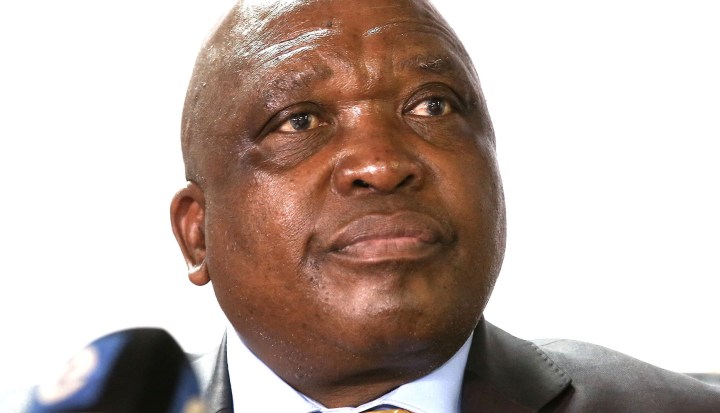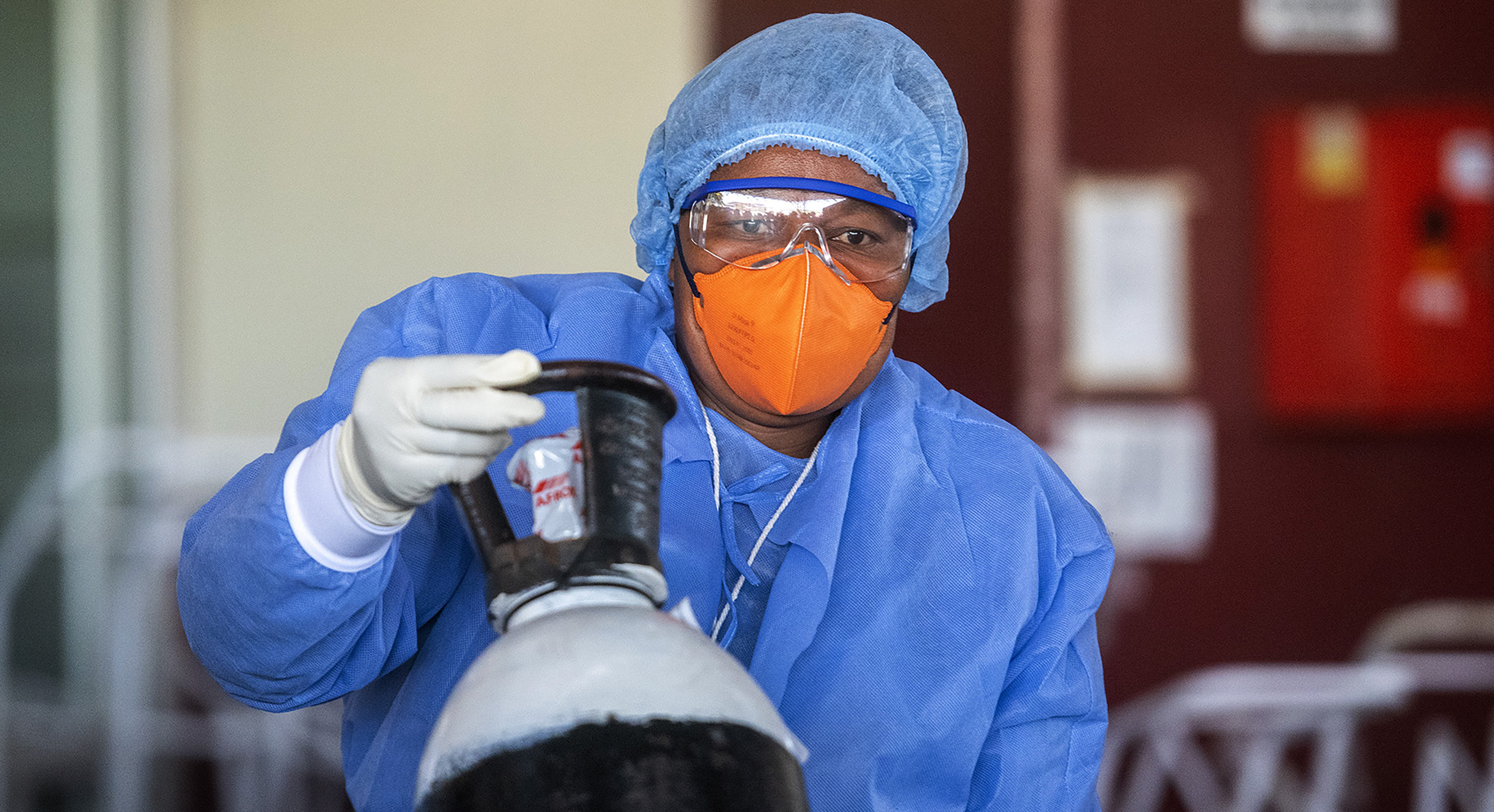PANDEMIC UPDATE
No new lockdown restrictions or masks for South Africa after Covid-19 ‘Kraken’ subvariant detected

There will be no new lockdown or travel restrictions in South Africa after University of Stellenbosch scientists found a case of the XBB.1.5 Omicron subvariant in South Africa, Minister of Health, Dr Joe Phaahla, said during a press conference on Tuesday.
South Africa will step up testing and monitoring wastewater for particles of the Sars-COV-2 virus in response to the discovery of the XBB1.5 subvariant in the country.
The subvariant has been named “The Kraken” by international media as it is claimed to be the most transmissible of the Sars-COV-2 variants and subvariants.
The genomic surveillance team at the University of Stellenbosch identified the subvariant in a random sample. The sample was one of 97 collected.
Minister of Health, Dr Joe Phaahla, said the government would impose no other lockdown measures, adding that they will not reintroduce the compulsory wearing of masks.
The superintendent-general of the national health department, Dr Sibusiso Buthelezi, said he sent a letter with new testing guidelines to the provinces last night. The department also decided to broaden the categories of adults who can receive another booster shot to everyone who has not had one in six months.
Deputy health minister Sibongiseni Dhlomo said there would be no compulsory wearing of masks, including when schools reopen as children are not prone to severe Covid-19.
Phaahla said scientists found the XBB.1.5 subvariant in a batch of random samples taken in December. It is impossible to identify who it came from, and no contact tracing can be done. He said while the sample was tested in the Western Cape, the person was not necessarily from the province. The government also has no information about the patient’s condition.
Phaahla said infection and hospitalisation rates remain low in the country, and the health department’s suggestion to the National Coronavirus Council this morning was that imposing any new lockdown measures or travel restrictions is unnecessary.

A health worker carries an oxygen tank at Steve Biko Academic Hospital on January 19, 2021 in Pretoria, South Africa during the country’s second wave of the pandemic. (Photo by Gallo Images/Alet Pretorius)
He said they would continue to advocate for vaccination as it has been proven “beyond any doubt” that [it is effective] in preventing severe disease and death.
China infections impact
Phaahla said the number of infections, hospitalisation, and deaths in China and globally had increased dramatically. Last week there was a 45% increase in infections and 48% in deaths. But the WHO said last week that according to genomic surveillance results released by China, XBB.1.5 is not the dominant variant in that country.
But Phaahla said the spike in infections, hospitalisations, and deaths due to Covid-19 had caused panic in various parts of the world and South Africa.
Visit Daily Maverick’s home page for more news, analysis and investigations
“Many countries have imposed special requirements for travellers from China,” he said.
“What do we know is that the variant of concern that remains dominant is the Omicron variant,” he said. The XBB.1.5 has been detected in the United States, where it is 6.8% prevalent. But there has been no marked change in the severity of illness,” he said.
He said the explanation received about the situation in China was that the current wave of infections followed the lifting of lockdown restrictions and limited natural immunity in the population and that a limited number of people have been vaccinated.
Plan of action
In contrast, Phaahla explained that the population immunity in South Africa is still robust, lowering the risk of severe disease. “We have not seen any major changes,” he said.
He said the health department has decided to do is the following:
- Increase the rate of testing of patients showing flu-like symptoms; and
- Positive PCR tests (done in a laboratory) will be sent for genomic sequencing to ascertain the subvariant in the sample.
Phaahla said the number of tests and the pool of specimens available for genomic surveillance was minimal.
The monitoring of South Africa’s wastewater systems will also be stepped up. As an additional measure, he said that the wastewater from aeroplanes arriving from countries with high levels of infection would also be tested.
He said vaccine boosters would be available to more adults within the next few days.
Dr Michelle Groome from the National Institute for Communicable Diseases said the new subvariant was not unexpected.
She said only one case was found, but more will likely be found.
“This subvariant has been found in many other countries. The proportion of XBB.1.5 is increasing and now makes up around 40% of infections,” she said.
She added that the subvariant is only present in low levels in other countries.
Groome explained that the country has high levels of population immunity, and people have been exposed to subvariants of Omicron before.
While there is some evidence that the XBB.1.5 is more transmissible, this is relatively weak, she continued.
“It has not been causing more hospitalisations,” she said.
Currently, she added, the levels of Covid-19 virus particles are still very low in the country’s wastewater systems.
Groome said that they expected to start wastewater surveillance on planes from China by next week.
Dr Lesley Bamford from the National Department of Health said by the end of January, all adults who have not received a vaccination dose in the past six months will be eligible for another booster shot.
She added that the country had sufficient vaccination stocks with 10 million shots of Johnson & Johnson and 8 million doses of the Pfizer vaccine. Pediatric Pfizer vaccines (for children under 12) were expected in the country by the end of January.

A women gets tested by a healthcare professional during a local government mass testing deployment in the high-density Alexandra township on day 32 of the national lockdown as a result of the Covid-19 coronavirus, in Johannesburg, South Africa, 27 April 2020. (Photo: EPA-EFE/Kim Ludbrook)
Bamford said that the country would continue with heterologous boosters. People vaccinated with the Johnson & Johnson vaccine can boost with a Pfizer vaccine and vice versa.
For children aged between 12 and 17, she said the advice received was that no further booster (after two shots) is recommended as they are at low risk of severe disease. DM/MC




















 Become an Insider
Become an Insider
Comments - Please login in order to comment.